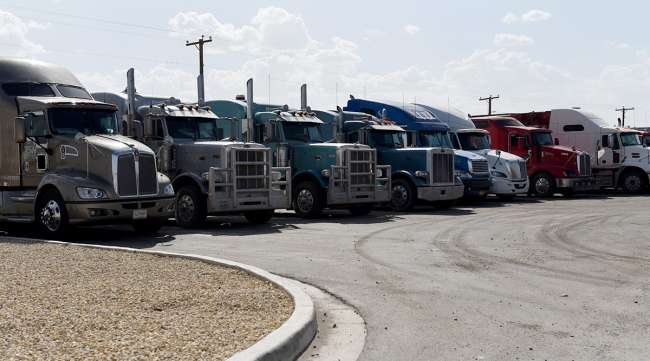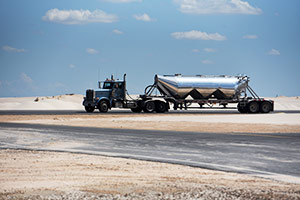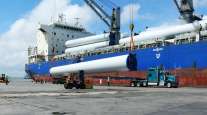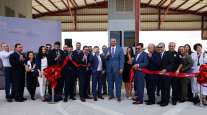Bloomberg News
Texas Manufacturing Growth Sparks Optimistic Outlook

Manufacturing activity in Texas grew in February, leaving economists and others in the industry optimistic about the future of production across the state and even into the Mexican borderlands.
This optimism wasn’t always present with manufacturers on the border during the Trump presidency, though. In the early days of the Trump administration in 2016, manufacturers were worried about the future of the North American Free Trade Agreement, which transformed the Rio Grande Valley over the past two decades. Trump said during his presidential campaign that he was going to scrap the deal.
While the future of the agreement still is not completely clear, manufacturing in Texas and along the border expanded in February, according to the Federal Reserve Bank of Dallas. Hiring numbers expanded across Texas in February while layoffs were minimal, and business executives told the Dallas Fed that they are pleased with the state of growth. About 48% of the business executives said that they expect hiring to increase over the year.
And despite NAFTA’s unclear future, Jesus Cañas, a senior economist at the Dallas Fed, said manufacturers are holding steady.
“I don’t see any major issues for manufacturers right now because everything is still in place,” Cañas said. “We’re still under NAFTA. Everything applies the same as it has for years, and it will continue to until Congress acts.”

A semi truck filled with sand exits from a sand mine in the west Texas plains of Winkler County. (Callaghan O'Hare/Bloomberg News)
Most manufacturing in the South Texas region, however, happens in Mexican border towns, such as Matamoros and Reynosa. Some companies, though, have set up on the U.S. side. Royal Technologies is a manufacturing company headquartered in Michigan but with an operation in Mission.
“I think you’ll see companies like them continue to grow here,” said Pharr, Texas, City Manager Alex Meade, who used to work with manufacturers such as Royal Technologies during his previous job as president of the Mission Economic Development Corp. By companies like them, Meade meant “midsize” manufacturing companies, not like the large scales of Black and Decker or Caterpillar.
Keith Patridge, President of the McAllen Economic Development Corp., has worked with manufacturing companies in the region for decades. Patridge has noticed activity growing across the sector recently, and he has witnessed it himself. Currently, Patridge said EDC is talking to 18 global companies looking to move to the region.
The difference this time: The companies are looking at the U.S. side of the border, not Mexico. For years, technology companies, auto manufacturers and others set up shop in Mexican border cities while distribution centers have been built in U.S. border cities.
“Of the 18 companies, 15 are U.S. side,” Patridge said. “Some of the companies we’re working, they specifically have been told by customers that their product has to be made in the U.S. So because of that, they’re not even looking at Mexico.”
Other reasons Patridge cited for interest in the United States included ongoing violence in northern Mexico, a recent labor union issue in Matamoros and a new border minimum wage implemented by new Mexican President Andres Manuel Lopez Obrador.
“So it’s definitely a huge shift,” Patridge said.
Distributed by Tribune Content Agency, LLC




